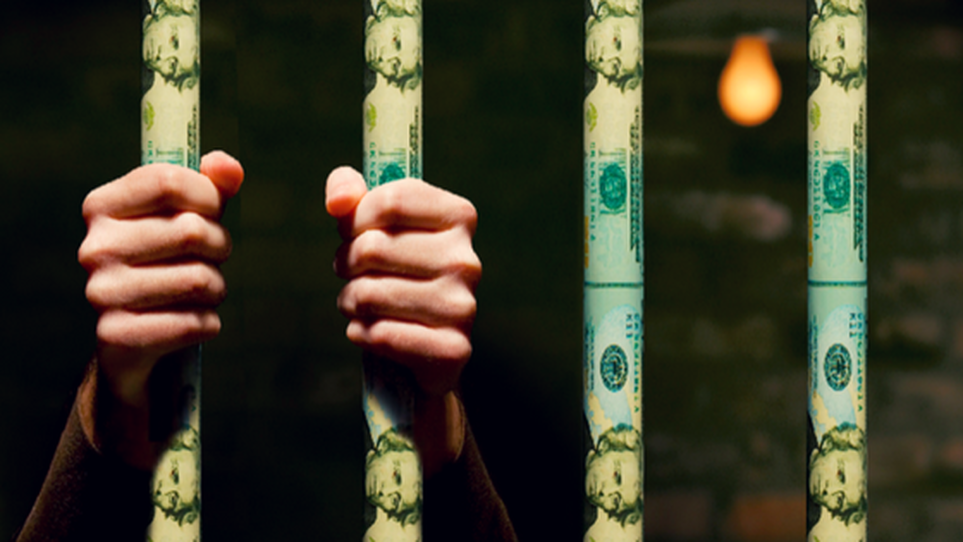By Christa St. George Privatization of Prisons. Mass Incarceration. American Economy. What do these terms have in common?
Money. There is a phenomenon facing our nation in which private, for-profit industries are acquiring ownership and regulation over prisons. The main argument in support of this trend is the potential to save the government money while providing a simpler, faster method of making decisions regarding retribution. Not only is this argument a fundamentally false reflection of the government’s fiscal budget, but it also sets a dangerous precedent of the criminal justice system as a private industry. Let me put this into perspective. The business models of private prisons rely upon the number of inmates and amount of funding received from the government. The increase in criminal convictions results in a need for more bed space, supplies, and correctional supervision—raising the demand for government financial assistance. As a tax-paying citizen, your money funds these companies, whose success and failure is determined by the number of people locked up. If the industry generates more profit by keeping people in prison, where is the incentive to rehabilitate? How can our criminal justice system uphold Constitutional values when liberty is measured as a “financial toll” on the success of the industry? Failure to rehabilitate the increasing number of people in prison contributes to the broader concept of mass incarceration, demonstrated by the United States’ unprecedented incarceration rate. The US is currently the world’s leader in imprisonment, with 2.3 million people currently in prisons and jails— representing a 500% increase over the last 40 years. More than 60% of prison inmates are people of color, with black men considered 60 times more likely to be imprisoned than white men. Overcrowding, poor facility conditions, increased life sentences, fiscal burdens on the state, and increased disenfranchisement rates are just a few of the consequences of mass incarceration. Who benefits from this phenomenon? The private prison industry. Unfortunately, as the demand for prison services increases with the number of criminal convictions, the standards of prison facilities are compromised and cycles of poverty and racial injustice are fostered. The privatization of prisons therefore conflicts with the civil liberties granted in the Eighth and Fourteenth Amendments to the Constitution. The Eighth Amendment—protecting the right against excessive fines and cruel and unusual punishment—is challenged by poor prison conditions. Without the ability to hold prisons accountable for their policies and facilities, there is no way of securing the provision of sufficient care. Furthermore, the imposition of unreasonable fines could be considered yet another method of imprisoning “profit-producing” people. The Fourteenth Amendment, safeguarding the right against the enforcement of any law depriving a person of life, liberty, or property without due process of law, is challenged by the problematic motives of criminal convictions. The enforcement of due process relies upon fair treatment throughout the judicial process, which is compromised by the desire to boost the economic prosperity of the prison industry. While the US Justice Department stated in August 2016 that it is going to “phase out” the use of privately run federal prisons, the fight is not yet over. This announcement applies only to the 122 federal run facilities, 20% of which are private. Private prisons account for 6% of the 1,719 state run prisons and are increasingly being used as immigration detention centers. The next step toward ending the $5 billion private prison industry therefore relies upon the cooperation of states. In order to prevent civil liberties from being breached in the future, it is critical to both understand and spread awareness of the dangers of prison privatization. The criminal justice system should not be driven by financial gain, just as the American Economy should not rely upon the imprisonment of its citizens. For additional information regarding private prisons, U.S. Correction trends, and Constitutional Rights, see the following links. http://sentencingproject.org/wp-content/uploads/2016/01/Trends-in-US-Corrections.pdf http://www.usconstitution.net/choose.html https://www.aclu.org/issues/mass-incarceration/privatization-criminal-justice https://www.justice.gov/opa/file/886311/download If you would like to learn more about your rights or believe that you have been discriminated against please visit the Civil Rights Justice Center located at 2150 N. 107th Street in Seattle Washington or visit our website at civilrightsjusticecenter.com
0 Comments
Leave a Reply. |


